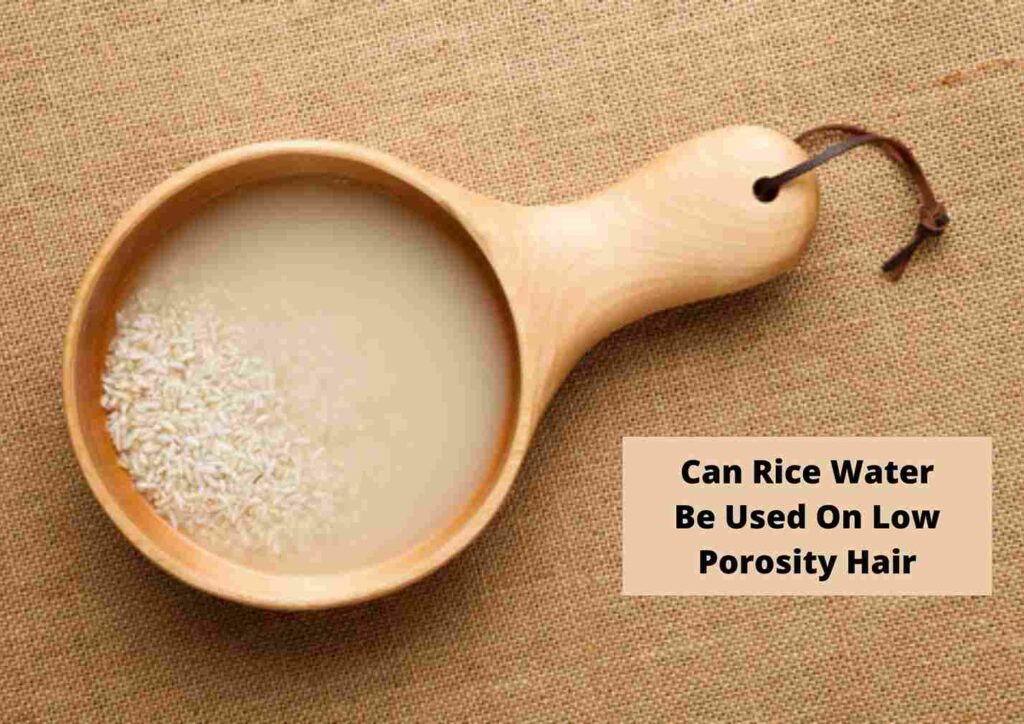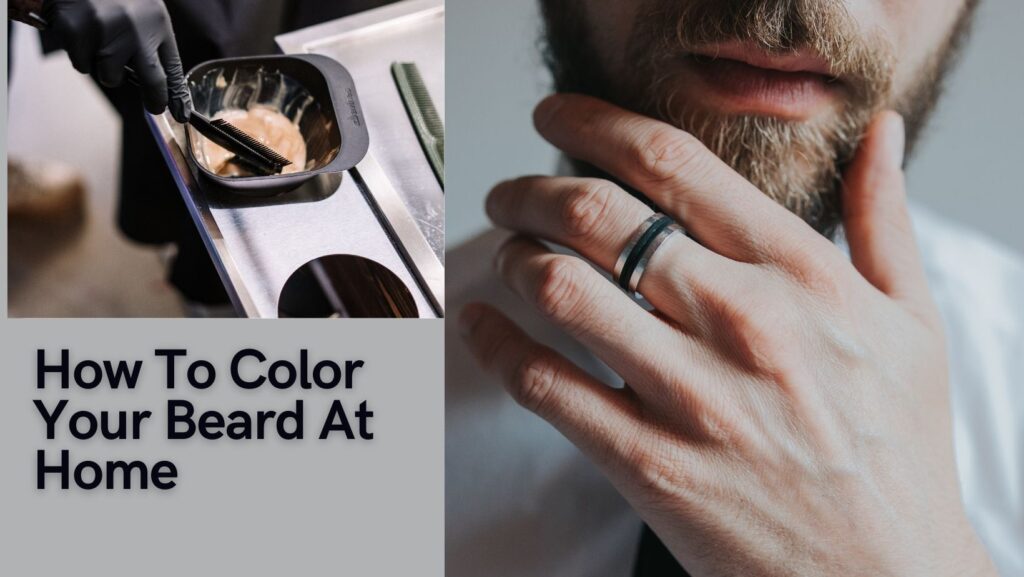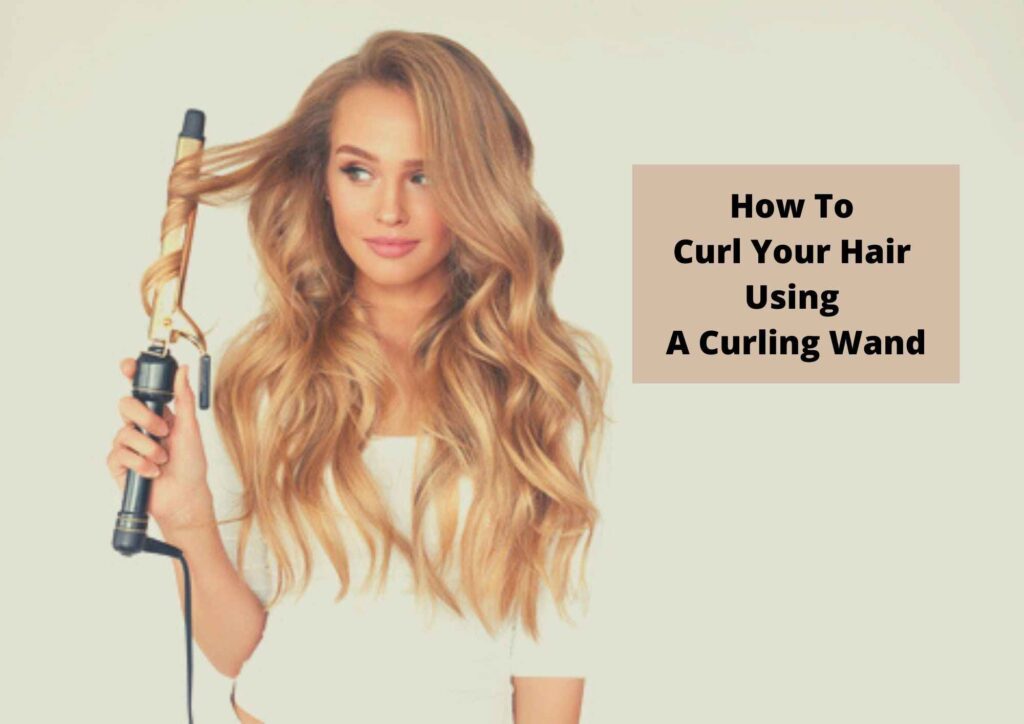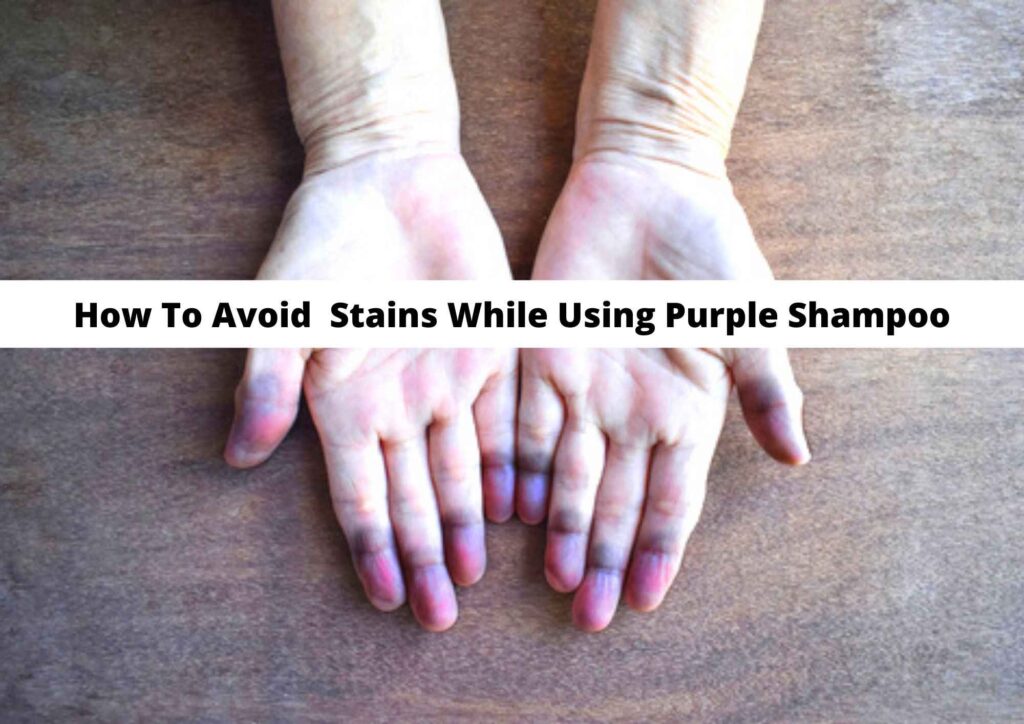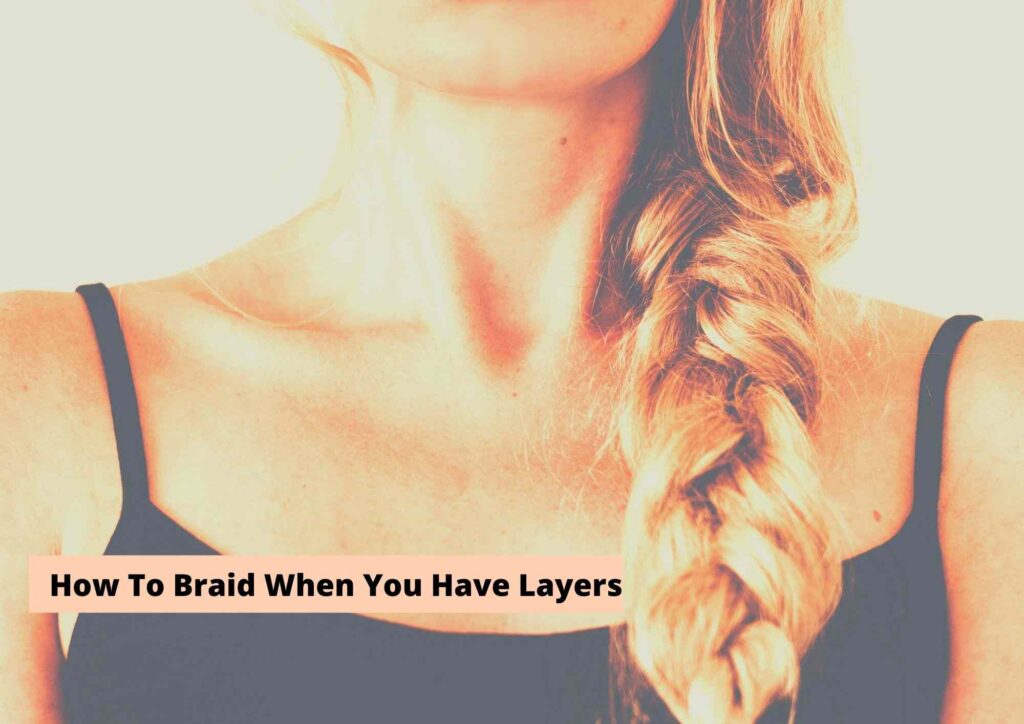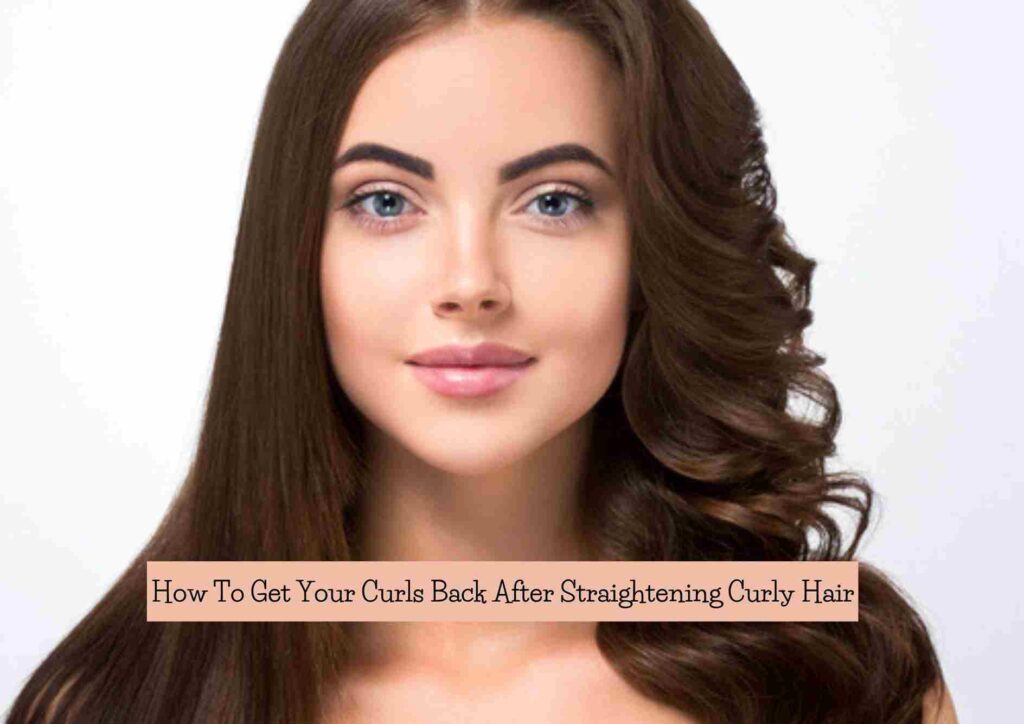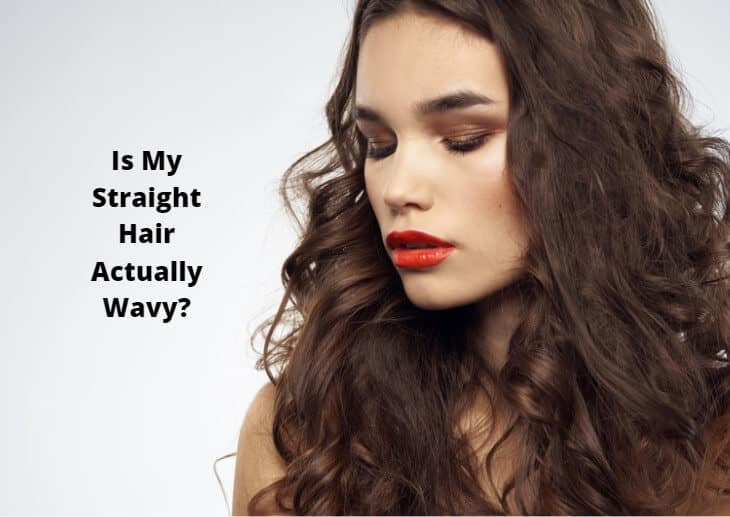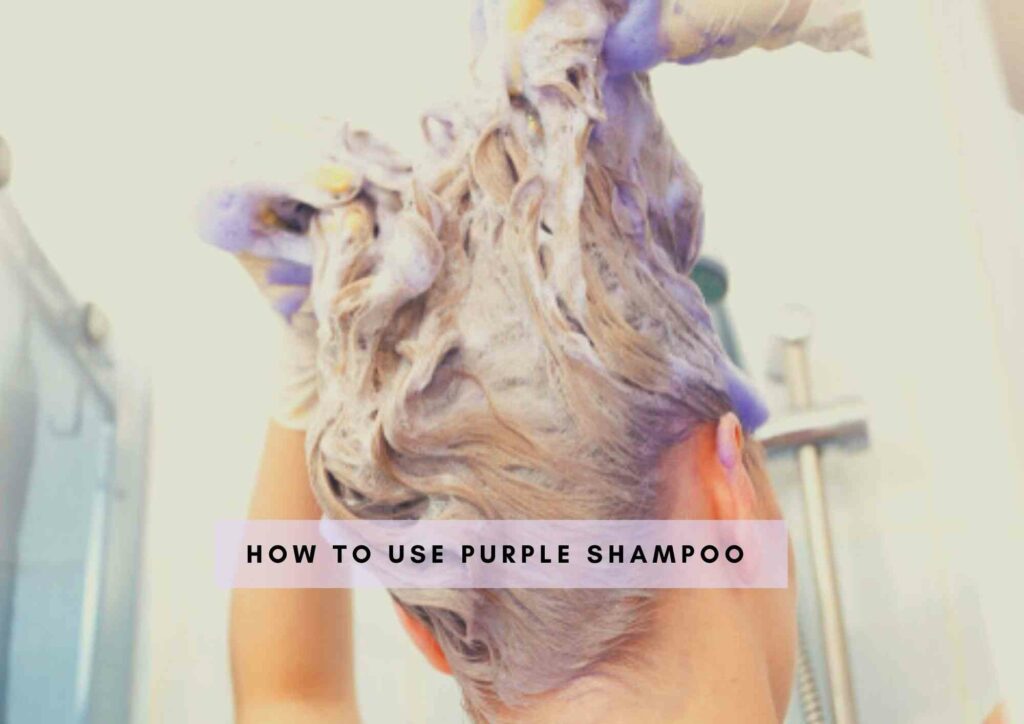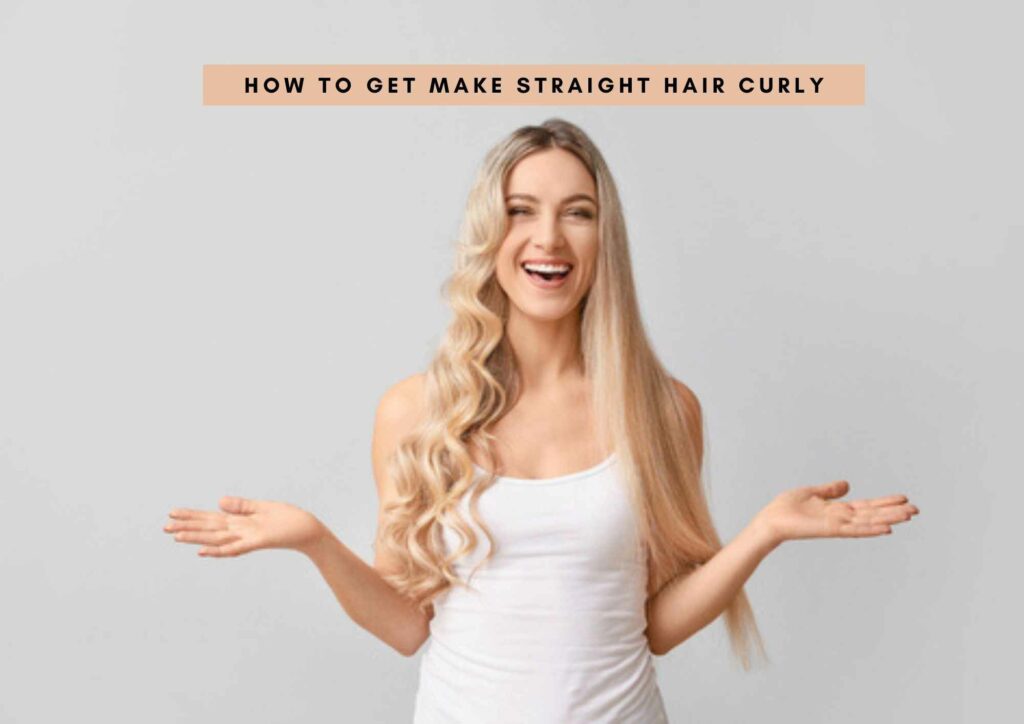Is rice water good for low porosity hair? Or should you use onion juice or rosemary in your DIY masks? And how do you grow low porosity hair? Find it all here!
If you’re someone who loves following beauty gurus on social media you’ll know that rice water is the new fad of the season.
Everywhere on Youtube, Tiktok or Instagram you’ll find women soaking and rinsing hair with rice water and claiming it does everything from softening hair to giving you Rapunzel-like long tresses.
But how much of these claims are true? Does rice water suit all hair types? And what about 4c low porosity hair?
Well, I’ve got it all covered in the article below. So read on!
Let’s first start with what rice water actually is. You know that residual water is left behind after you rinse rice before cooking. It’s supposed to be rich in nutrients, especially proteins and Inositol that helps with hair growth.
There is also research to suggest that using rice water as a hair treatment can help decrease surface friction on hair reducing wear and tear. The same study also noted that rice water can help increase hair elasticity.
So now that we know that rice water is not quack medicine and can actually benefit, let’s see if it can benefit ALL types of hair including low porosity strands.
Also, low porosity hair comes in many textures. You can have low porosity hair while having straight, wavy, curly or even 4c hair!
What Is Low Porosity Hair?
The next question obviously is “what on earth is low porosity hair?” Well don’t panic ! Low porosity hair is simply hair whose cuticles are arranged very densely packed together and are often overlapping too.
So this leaves very little room for moisture (or hair products) to either get absorbed into the hair shaft or leave it.
Hair products tend to sit on the hair and leave it limp. And this hair type can also take forever to wash and dry as water doesn’t enter the hair shaft easily and when it does, it can take forever to air dry it.
Is Rice Water Good For Low Porosity Hair
As I’ve mentioned above, moisture, oils and other hair products tend to sit on low porosity hair strands and not get absorbed due to the structure of cuticles.
So a lot of people are wary of using rice water on low porosity hair as the proteins and starches from the water can coat the outside hair without being absorbed into the shaft.
This coating can further make it difficult for moisture or oils to penetrate the hair shaft, leaving low porosity hair even drier.
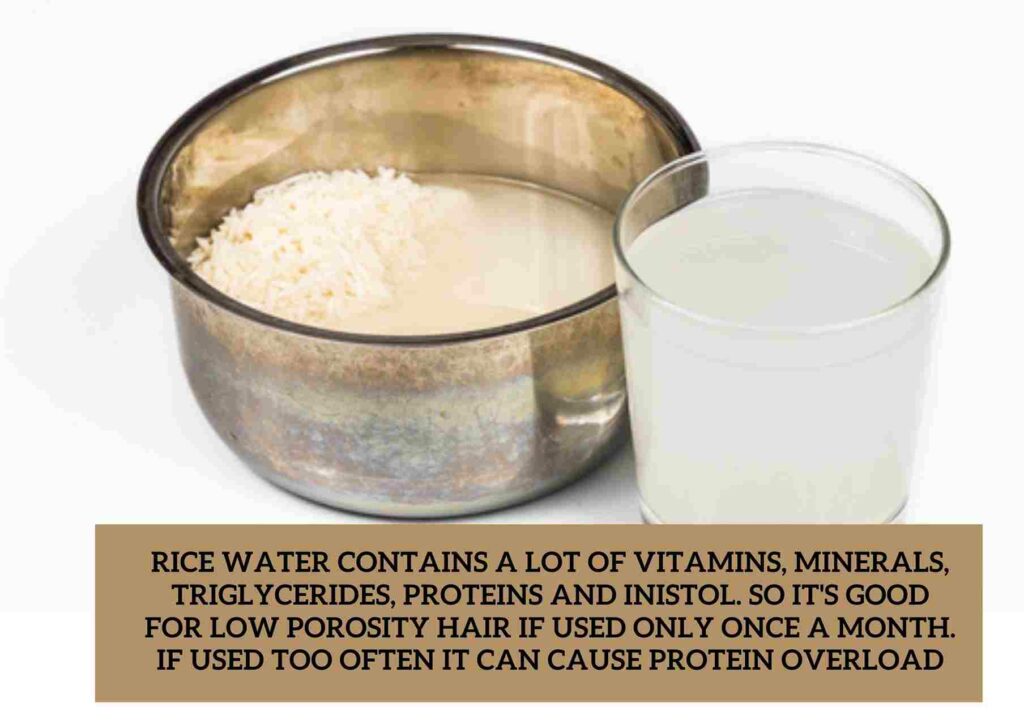
However, this doesn’t mean that you cannot use rice water on low porosity hair at all. Rice water is good for low porosity hair if used judiciously. You need to limit the use of rice water to once or twice a month to prevent protein overload on hair. This will ensure your low porosity hair gets the benefits of rice water without any of the side effects.
Benefits Of Using Rice Water On Low Porosity Hair
There are many benefits of using rice water on low porosity hair, these include:
Rice Water Helps Hair Grow
Rice water is packed with nutrients like vitamins and Inositol that can help hair growth by boosting hair follicle health.
One study also suggests that rice water helps control the hair loss causing hormones in the body, promoting new hair growth on your scalp.
It Helps Balance Moisture Levels
The biggest benefit of rice water is that it can prevent hygral fatigue. It refers to a situation where the hair shafts absorb excess moisture leading to dullness and breakage.
Rice water being a protein hair treatment can balance moisture levels in the hair shaft, strengthening hair.
However, this is only the case with high porosity hair. With low porosity tresses, it’s almost impossible to have hygral fatigue in the first place as the hair doesn’t absorb enough water.
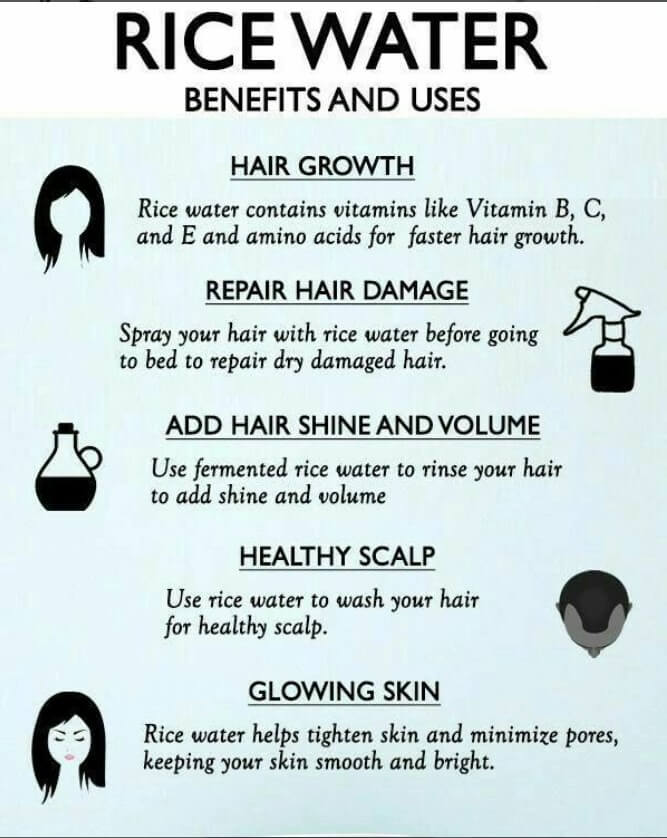
It Adds Shine To Hair
A lot of beauty experts swear that the starchy solution in rice water can help add shine to hair in a way that’s similar to how conditioners work. They starch forms a smooth coating on hair reflecting light and adding shine.
Prevents Hair Falls Due To Breakage
As rice water is a protein treatment it’s known to increase elasticity of hair and reduce surface tension.
This helps reduce friction and breakage of hair resulting from mechanical damage.
Detangles and Softens Hair
Since rice water helps reduce surface tension on your hair, it can also help detangle tresses by providing them with enough slip.
- Related: How to Grow Low Porosity Hair
- Related: Best Co Wash Products For Low Porosity Hair
- Related: Are Hot Oil Treatments Good For Low Porosity Hair
What Is Good For Low Porosity Hair
Use Protein Treatments Like Rice Water Minimally
Low porosity hair needs more moisture and protein treatments can often leave this hair type dry by reducing moisture content in hair.
So do not use rice water or other DIY protein masks like eggs or even store-bought protein masks with keratin, etc. more than once a month if you have low porosity hair.
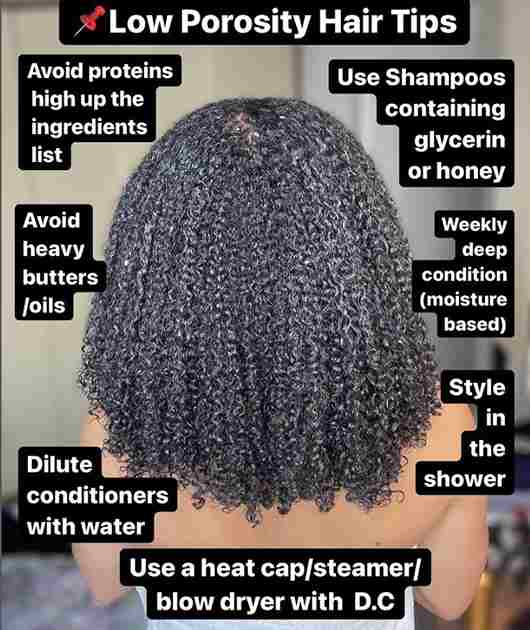
Heat Can Be Your Hair’s Best Friend
The chief issue with low porosity hair is that moisture doesn’t get through due to the hair cuticles being really closed off. So any kind of heat treatment is a fantastic choice for low porosity hair.
You can invest in a thermal cap or even a hooded steamer to use while deep conditioning as the heat from these products will cause cuticles to open. This in turn, will allow moisture to penetrate hair better.
Remove Product Buildup Using Clarifying Shampoos
Product buildup is bad for hair. Period. But it can be twice as devastating for low porosity hair as it forms a coating on strands preventing moisture and hair products from entering the shaft.
So using a clarifying shampoo every 10-14 days is recommended to remove any product buildup on hair.
Stay Away From Heavy Conditioners
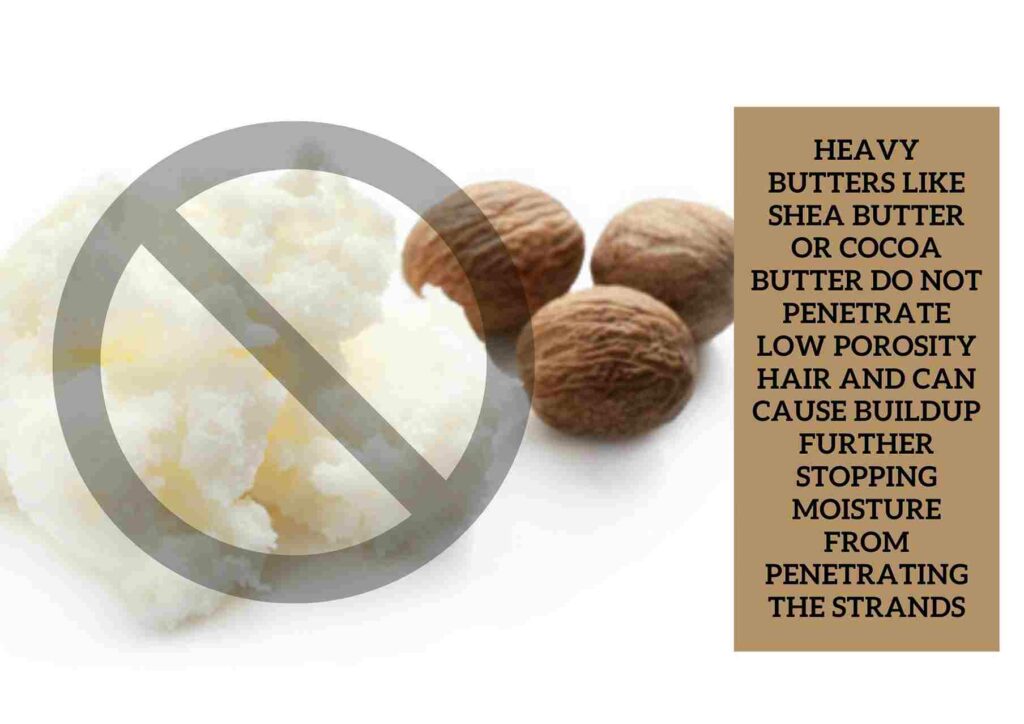
While I love ingredients like shea butter, coconut oil, or sweet almond oil, they can get too heavy for low porosity hair. Yes even if you have 4c low porosity hair!
These oils do not penetrate hair and just sit atop your strands further blocking moisture from entering hair.
So choose lightweight oils like jojoba oil, argan oil, grapeseed oil, rosemary oil, among others to condition your hair.
Choose Products That Are Light Yet Hydrating
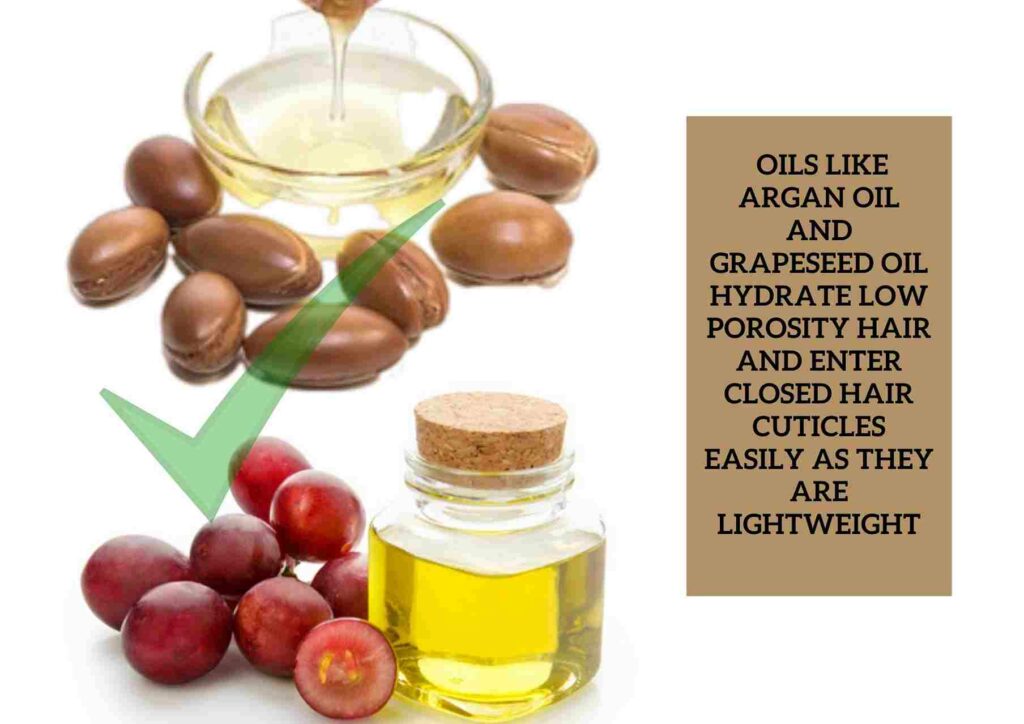
As mentioned above, products that will hydrate hair without forming buildup are your best bet for low porosity hair.
These include oils like jojoba, argan and grapeseed, alcohols like cetyl alcohol, hyaluronic acid, etc are great for hydrating hair.
Also when you are buying hair products for low porosity hair check the ingredients list for humectants like propylene glycol, glycerin, honey, etc.
Hair Porosity Test: How To Find If Your Hair Is Low or High Porosity
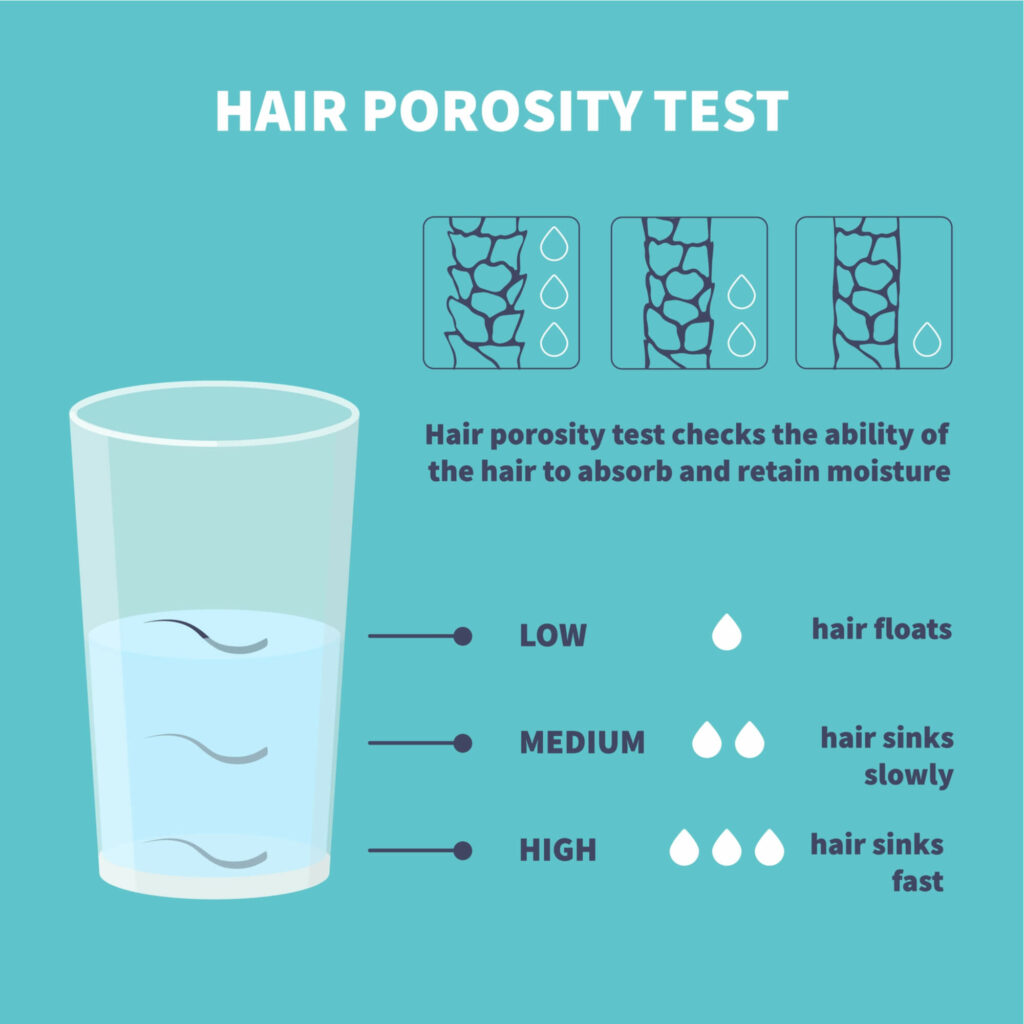
The test to check if your hair has low porosity or high porosity is very simple. All you will need for it is a glass of water.
When you have washed and air-dried your hair, pluck out a strand and drop it into a glass of water.
If the hair strand floats on top before sinking to the bottom this means you have low porosity hair. But if the strand sinks to the bottom immediately, this means it can absorb moisture easily and therefore has high porosity.
Hair With Low Porosity? What Treatments and Mask Suit You?
Hair with low porosity requires extra care and attention to effectively moisturize and nourish it. Natural hair masks and homemade treatments can be a great option for low porosity hair as they often contain gentle, natural ingredients that provide moisture and enhance hair health. Here are some natural hair masks and homemade treatments that suit hair with low porosity:
- Coconut Milk and Honey Mask: Mix equal parts coconut milk and raw honey in a bowl. Apply the mixture to clean, damp hair and leave it on for 20-30 minutes before rinsing thoroughly. Coconut milk is rich in fatty acids and provides deep moisture, while honey is a humectant that helps retain moisture in the hair.
- Avocado and Olive Oil Mask: Mash a ripe avocado and mix it with a tablespoon of olive oil until you achieve a smooth paste. Apply the mixture to your hair, focusing on the ends, and leave it on for 30 minutes. Rinse thoroughly. Avocado is packed with vitamins and healthy fats, providing nourishment and moisture to low porosity hair, while olive oil helps to seal in the moisture.
- Aloe Vera and Rose Water Spray: Mix equal parts aloe vera gel and rose water in a spray bottle. Shake well and spray onto damp hair after washing. This combination helps to hydrate and refresh low porosity hair without weighing it down.
- Yogurt and Banana Mask: Blend a ripe banana with a few tablespoons of plain yogurt until smooth. Apply the mixture to your hair and leave it on for 30 minutes before rinsing. Yogurt contains lactic acid, which helps to gently exfoliate the scalp and promote healthy hair growth. Bananas are rich in potassium and vitamins, providing moisture and shine to low porosity hair.
- Green Tea Rinse: Brew a cup of green tea and let it cool. After shampooing, pour the green tea over your hair as a final rinse. Green tea is packed with antioxidants and can help stimulate the hair follicles while providing a natural shine to low porosity hair.
Remember to always perform a patch test before using any new ingredients on your hair to check for any potential allergies or adverse reactions. These natural hair masks and homemade treatments can be used on a regular basis to nourish and moisturize low porosity hair. Be consistent with your hair care routine and adjust the frequency of treatments based on your hair’s individual needs.
FAQs about Rice Water and Low Porosity Hair
How often should you use rice water on low porosity hair?
If you have low porosity hair then you shouldn’t use rice water on your hair very often as it can cause protein overload. Most hair experts recommend using rice water on hair once a month or between 8-10 weeks. Also, if you want to use rice water to fix split ends, it’s better to just soak your hair ends instead of using rice water all over your head.
Is rosemary water good for low porosity hair?
Yes, rosemary water can help balance the levels of proteins in low porosity hair making it less prone to brittleness. It’s also got antibacterial and anti-inflammatory properties so it’s good for scalp health as well. In fact, rosemary oil is among the best oil for low porosity hair as it’s lightweight.
Is aloe vera good for low porosity hair?
This may come as a surprise but no, aloe vera is, in fact, not good for low porosity hair. Low porosity hair has cuticles very tightly packed together and to receive moisture these cuticles need to be opened. Now either application of heat or using an alkaline solution can help open these cuticles. But aloe vera, which has a pH of 6 is acidic and will in fact, close hair cuticles further, making penetration of moisture even difficult.
Final Thoughts On Using Rice Water For Low Porosity Hair
To sum it all up, yes rice water is good for low porosity hair provided you do not overuse it.
Low porosity hair is more prone to dryness as hair doesn’t absorb moisture properly. So if you overload it with rice water the starch and proteins in it can cause buildup on hair, making moisture absorption even more difficult.
But other than this precaution I don’t see why rice water cannot be used as a DIY protein mask for 4c hair or any other hair texture which is low porosity.
Rice water contains triglycerides, inositol, starch, vitamins, etc. that play a vital role in hair health.
In fact, if you want to increase the effectiveness of a rice water rinse on hair, leave it outside at room temperature for 2-3 days to ferment.
Fermented rice water contains many antioxidants which are fantastic for boosting hair follicle health and helping with hair growth.
Why You Should Trust Haireveryday?
The author of this article, Leah Marie Priest has a degree in Cosmetology with years of experience in dealing with hair care, scalp care, and hairstyling. As someone who extensively deals with all kinds of hair textures, products, styling methods and more, hair Leah Marie knows what kind of products and procedures suit each hair type and person. We have also tested these hair products and processes ourselves to provide you an unbiased review about every product. Each of our articles are also reviewed by a team of medical professionals so that you get the most accurate and expert-reviewed information.
Also Read:
Does Bleaching Hair Increase Porosity
Does High Porosity Hair Need Protein
Can I Use Shea Butter For High Porosity Hair
Is Shea Moisture Coconut And Hibiscus Good For Low Porosity Hair
Can High Porosity Hair Be Protein Sensitive
To Summarize

